Early Renaissance Art in Italy
1/25
Earn XP
Description and Tags
Name | Mastery | Learn | Test | Matching | Spaced | Call with Kai |
|---|
No analytics yet
Send a link to your students to track their progress
26 Terms
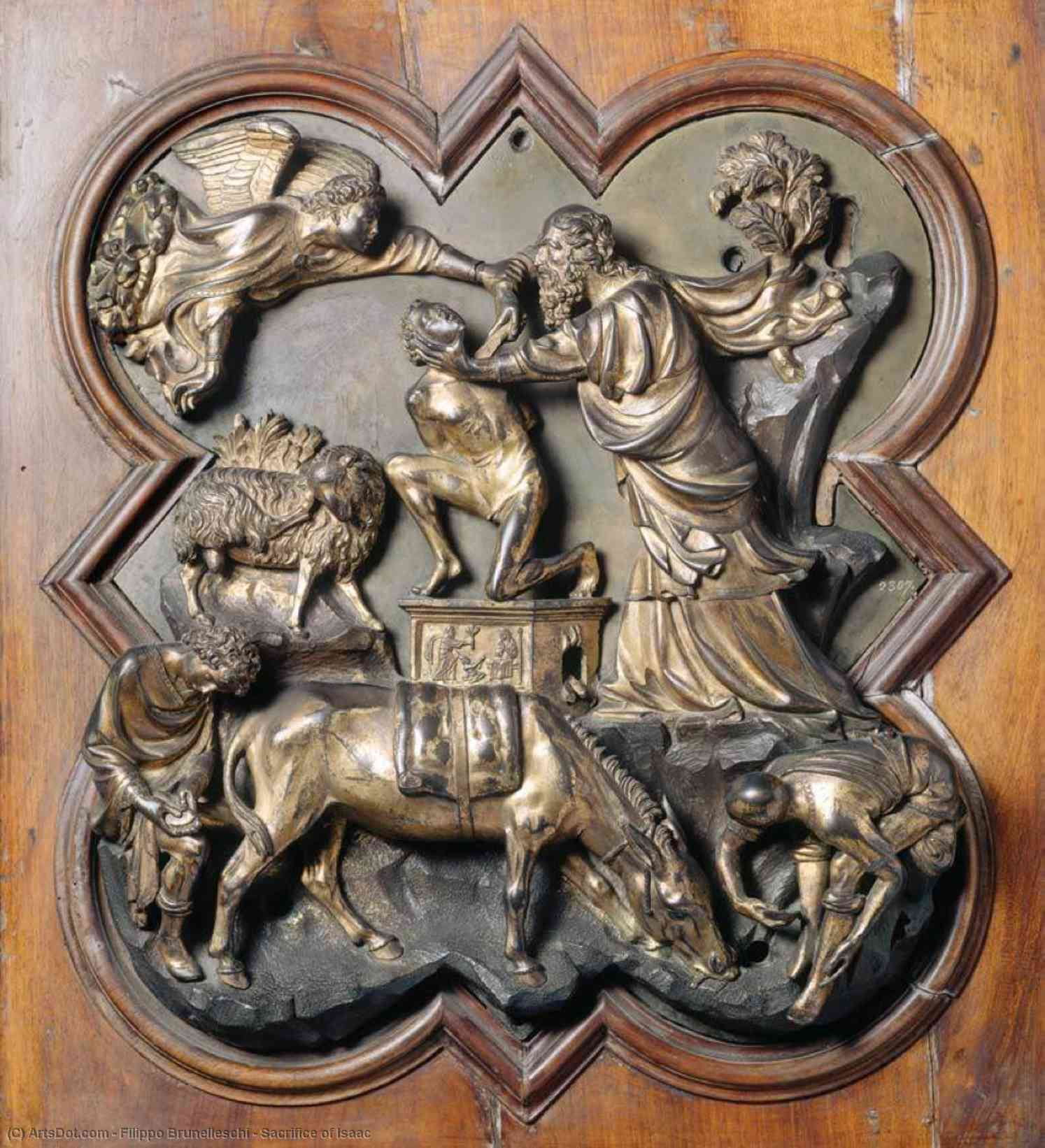
Title: The Sacrifice of Isaac
Date: c.1401
Artist: Filippo Brunelleschi
Culture: Florentine
Period: Early Renaissance
3 facts:
Submitted for the Florence Baptistery door competition.
Quatrefoil shape
Relief, lost to Ghiberti because of less drama, held the head in place
Characteristics of early Renaissance
1) Rebirth of Classical
2) Humanism
3) Science of looking
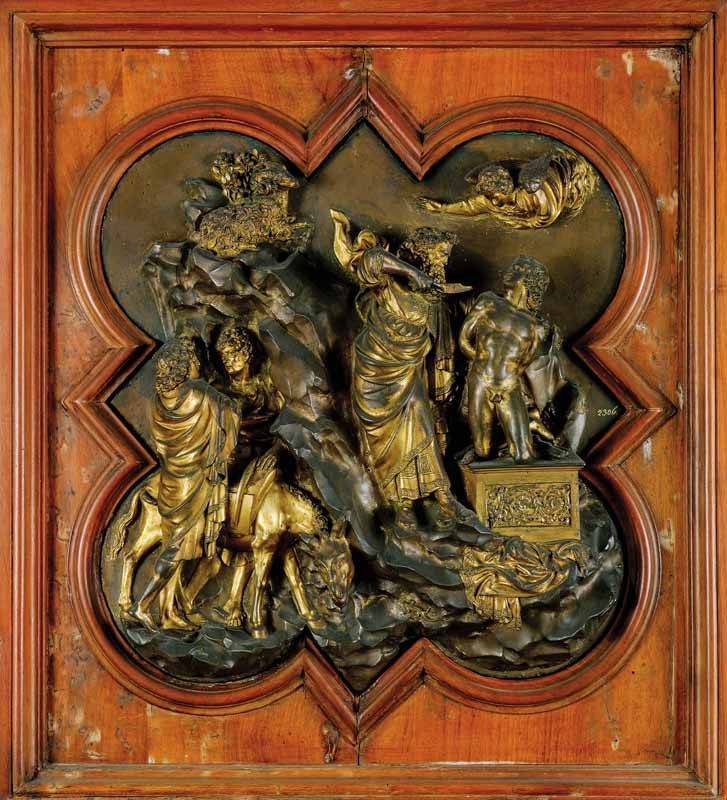
Title: The Sacrifice of Isaac
Date: c.1401
Artist: Lorenzo Ghiberti
Culture: Florentine
Period: Early Renaissance
3 facts:
Won the 1401 competition for the Florence Baptistery doors.
Relief quatrefoil shape
Helped launch Ghiberti’s long career in bronze doors.
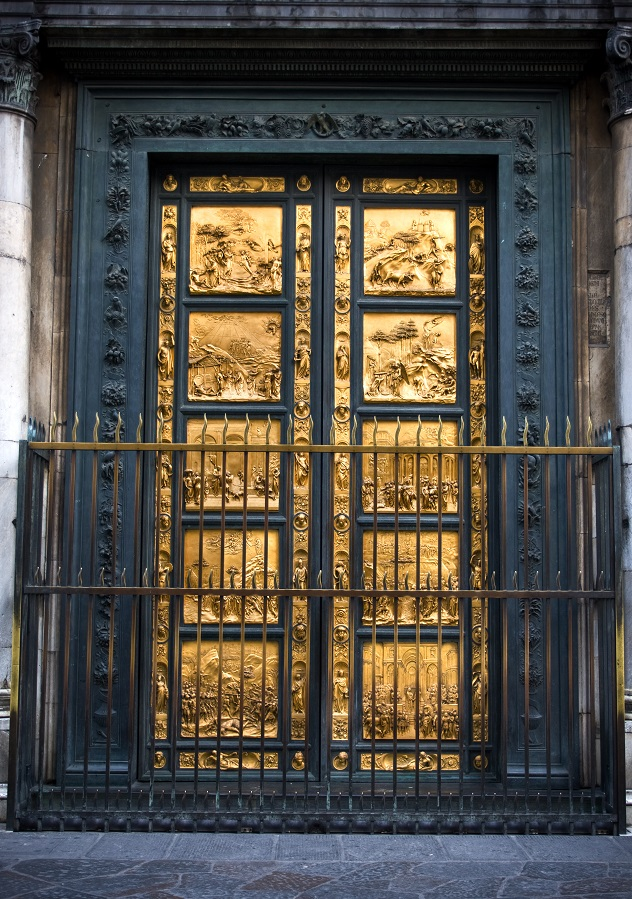
Title: Gates of Paradise
Date: c.1404–24
Artist: Lorenzo Ghiberti
Culture: Florentine
Period: Early Renaissance
3 facts:
East doors of the Florence Baptistery, commissioned by Lorenzo after winning againt Filipo Brunelleschiby
Features ten large bas-relief panels depicting Old Testament scenes.
Extremely intricate details with gilded bronze
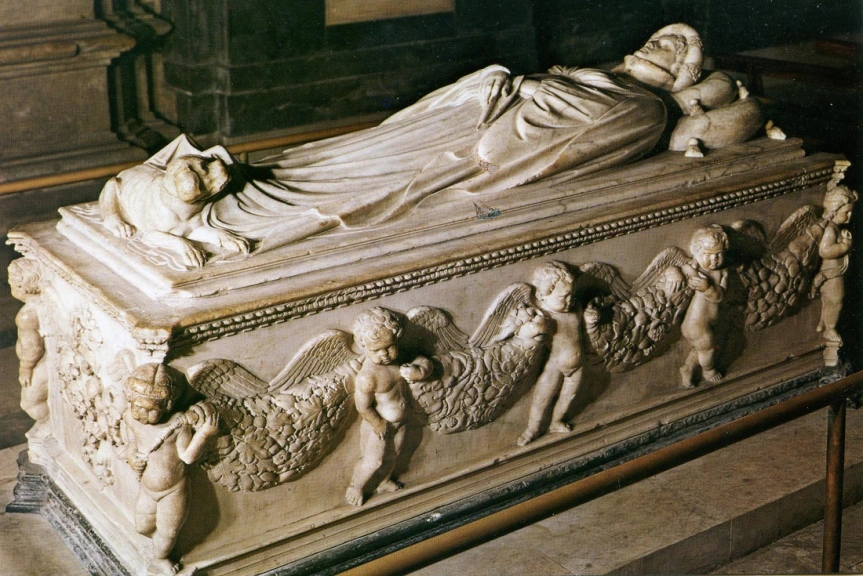
Title: Tomb of Illaria del Carretto
Date: c.1406
Artist: Jacopo della Quercia
Culture: Sienese
Period: Early Renaissance
3 facts:
Commissioned for Illaria, whole thing made out off marble
Dog symbolizes fidelity; protecting her for eternity in the after life
Influenced + give inspirations the film sleeping beauty
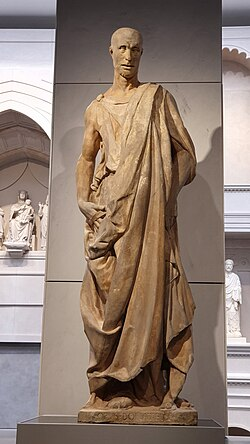
Title: Il Zuccone
Date: c.1423–25
Artist: Donatello
Culture: Florentine
Period: Early Renaissance
3 facts:
Realistic marble statue of the prophet Habakkuk.
Wears an ancient Roman toga, the earliest idea of pockets
Meant to be viewed from a worm’s eye perspective, commissioned for a bell tower
Nicknamed pumpkin head, zuccone meaning zucchini
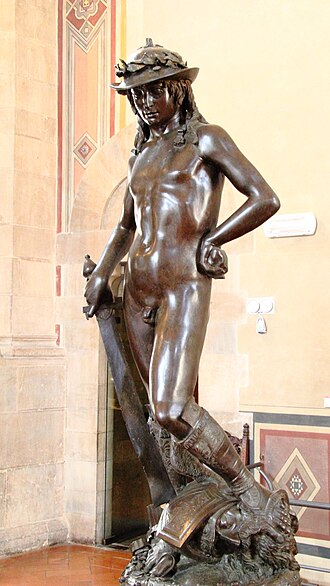
David
Date: c.1430–32
Artist: Donatello
Culture: Florentine
Period: Early Renaissance
3 facts:
Sculpture in the round symbolizes Florence's civic pride (a little city above the big cities in terms of wealth and artistic creations)
Depicts David after slaying Goliath.
Lost-wax technique; cire perdu
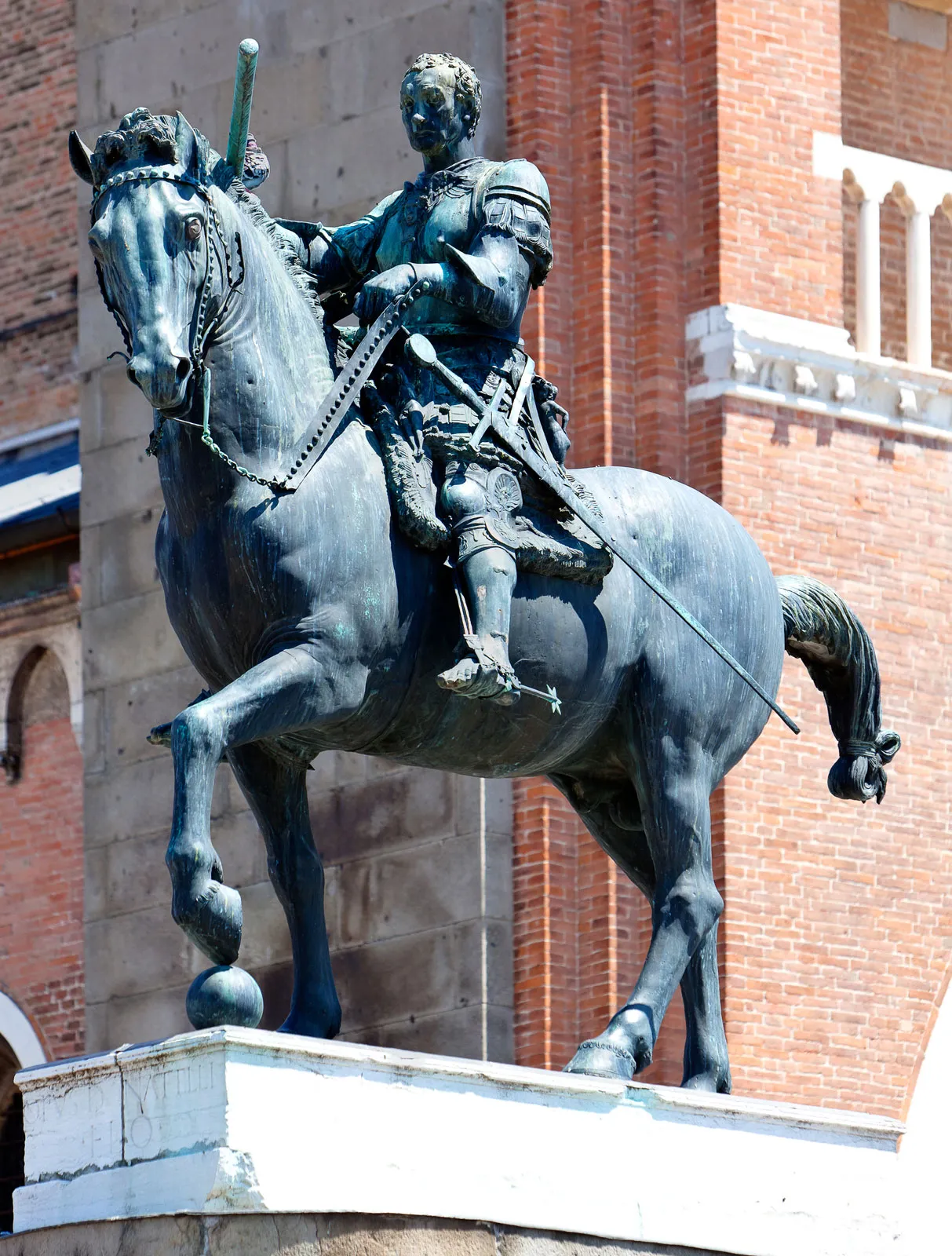
Title: Erasmo da Narni (Gattamelata)
Date: c.1445–50
Artist: Donatello
Culture: Florentine
Period: Early Renaissance
3 facts:
Nicknamed Gattamelata; honeyed cat
Idea of composure and silent power, aura
Took inspiration from Marcus Aurelius
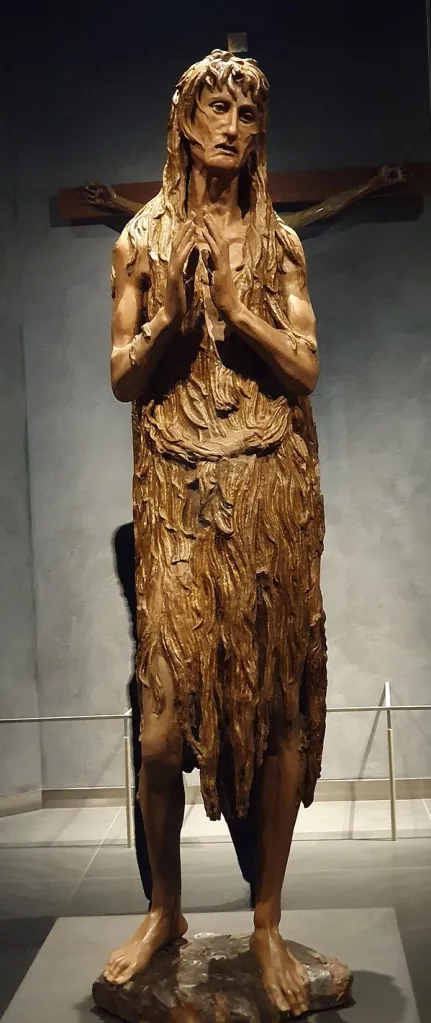
Title: Mary Magdalene
Date: c.1454–1455
Artist: Donatello
Culture: Florentine
Period: Early Renaissance
3 facts:
Made of wood (cheaper, more accessible)
depicts Mary near the end of her life
Commercial to stray people away from prostitution
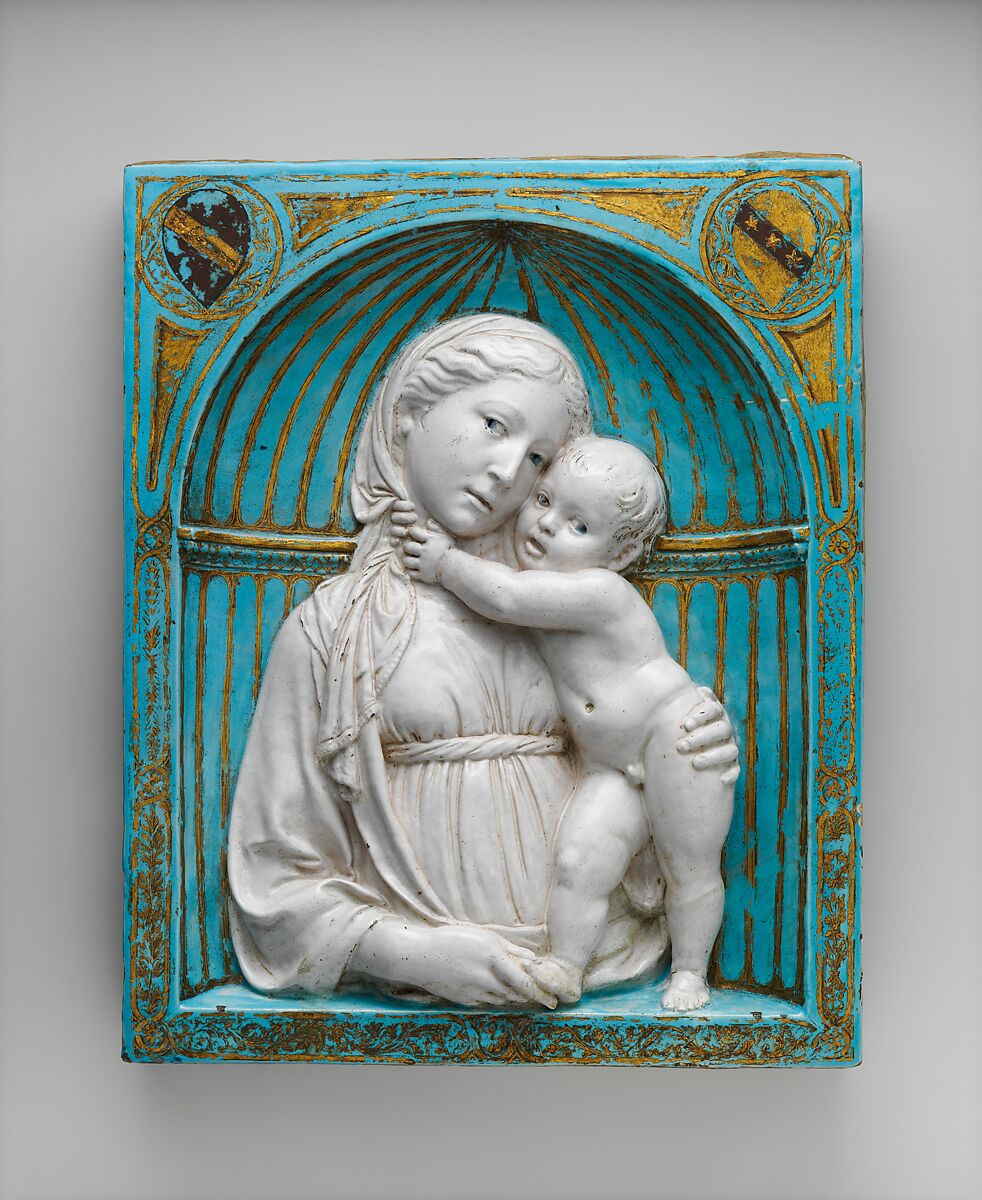
Title: Madonna and Child
Date: c.1420
Artist: Lucca della Robbia
Culture: Florentine
Period: Early Renaissance
3 facts:
Looking down, early Renaissance humanism
Made with terracotta
Use of gold and blue to show a sense of divinity, away from old depiction of aged young christ
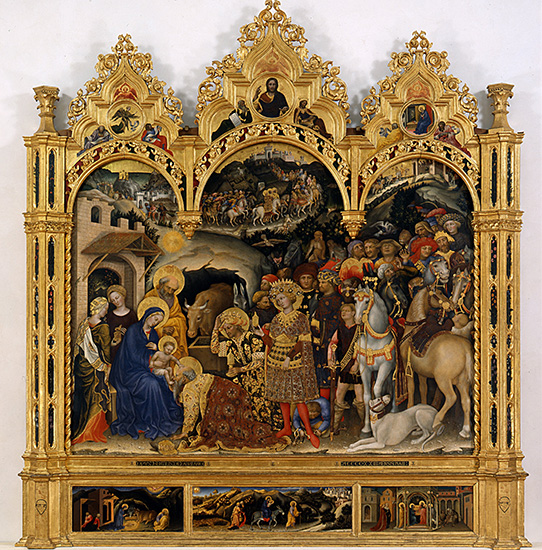
Title: The Adoration of the Magi
Date: c.1423
Artist: Gentile da Fabriano
Culture: Florentine
Period: International Gothic
3 facts:
3 kings, 3 stages of human life
Commissioned by Pazzi Strozzi
Includes a predella with biblical events from the New Testament
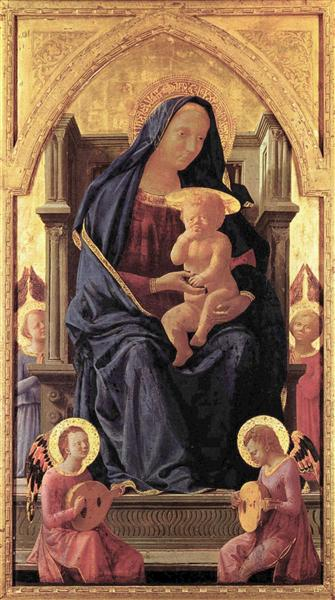
Title: Madonna and Child Enthroned
Date: c.1424
Artist: Masaccio
Culture: Florentine
Period: Early Renaissance
3 facts:
Shows the evolution of the Madonna and Child paintings
Humanism
Not obv but linear perspectives, realistic drapery
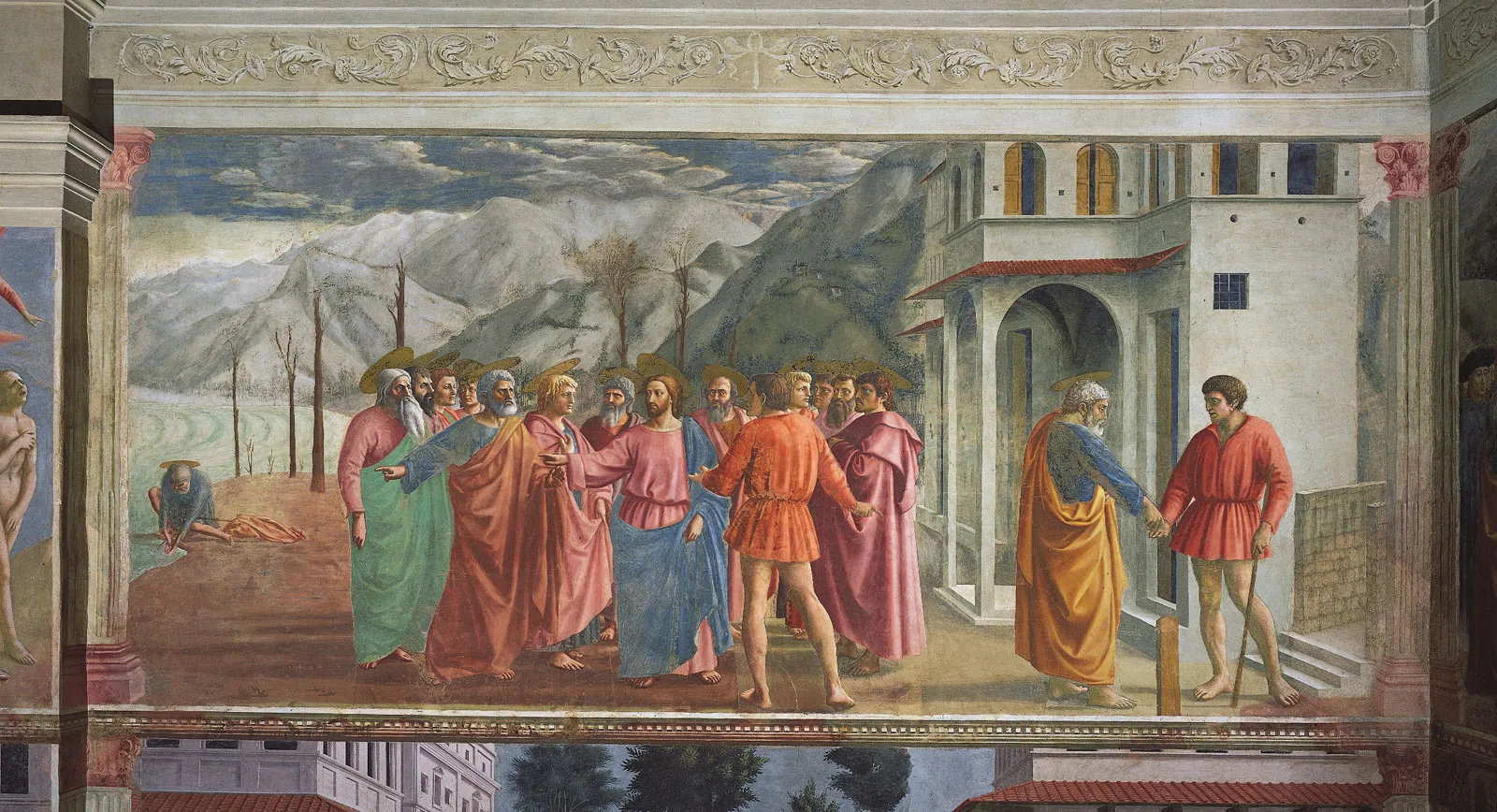
Title: Peter and the Tribute Money
Date: c.1427
Artist: Masaccio
Culture: Florentine
Period: Early Renaissance
3 facts:
Iscocephaly of the heads,
Peter is present multiple times
Jesus is trying to calm and control the situation, attempting to create perspectives
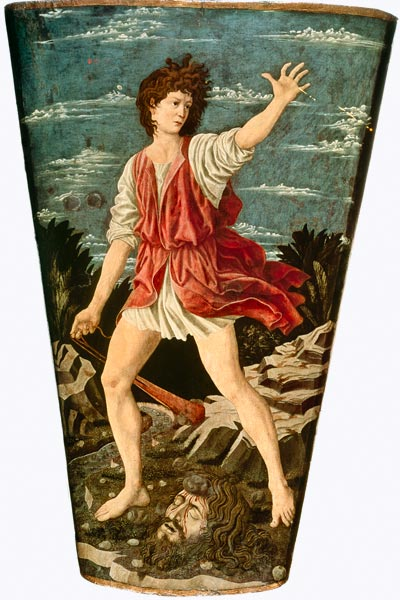
Title: Young David
Date: c.1450
Artist: Andrea del Castagno
Culture: Florentine
Period: Early Renaissance
3 facts:
Depicts David as a youth in motion. Hand holding a slingshot.
Painted on a parade shield, for display
Goliath's head symbolizes that David was victorious
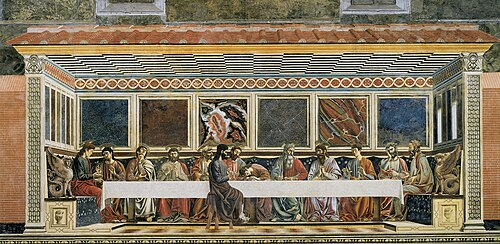
Title: The Last Supper
Date: c.1445–50
Artist: Andrea del Castagno
Culture: Florentine
Period: Early Renaissance
3 facts:
Early use of linear perspective
Hard to distinct Jesus unlike the other Last Supper paintings
Judas is isolated on the near side of the table. (betrayed Christ)
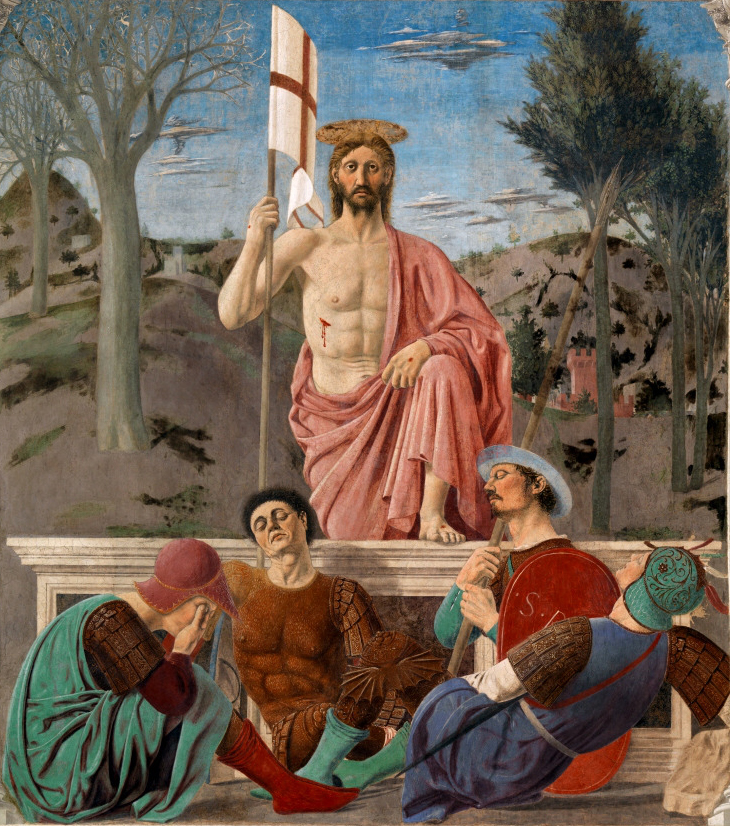
Title: Resurrection
Date: c.1463
Artist: Piero della Francesca
Culture: Florentine
Period: Early Renaissance
3 facts:
Christ rises triumphant, central and calm.
Elements from ancient Rome, limited gore to appease Italian audience
Triangular composition guiding the viewer’s eyes to Christ
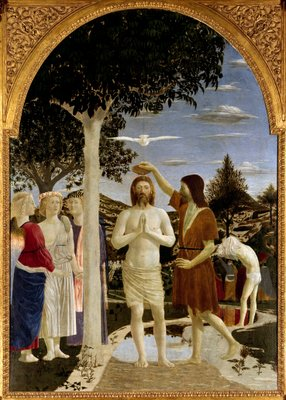
Title: Baptism of Christ
Date: c.1445
Artist: Piero della Francesca
Culture: Florentine
Period: Early Renaissance
3 facts:
Emphasizes serenity, tranquillity, spiritual clarity and order with a very subtle lighting
The characters in the background embodies early renaissance humanism
Incorporates symbolism of the Holy Trinity. Dove symbolizes peace and the holy spirit
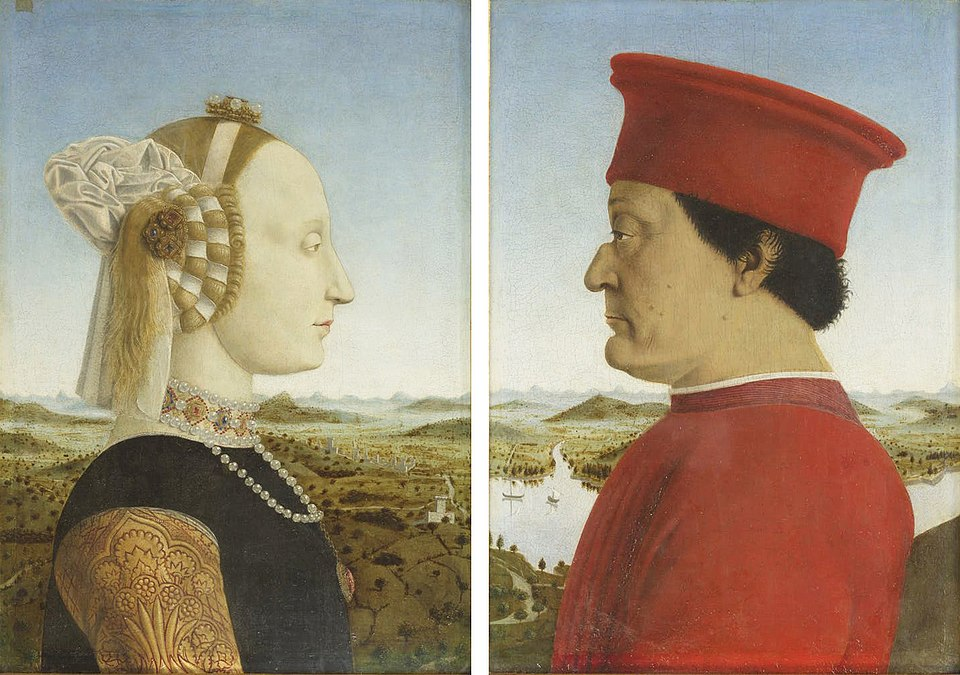
The Duke and Duchess of Urbino Federico da Montefeltro and Battista Sforza
Date: c.1475
Artist: Piero della Francesca
Culture: Florentine
Period: Early Renaissance
3 facts:
Diptych emphasizes status
Pale skin and a plucked high forehead embody the Early Renaissance beauty standard, wealthy (didnt have to do manual outside labour)
Includes idealized landscape backgrounds. Symbolize influence
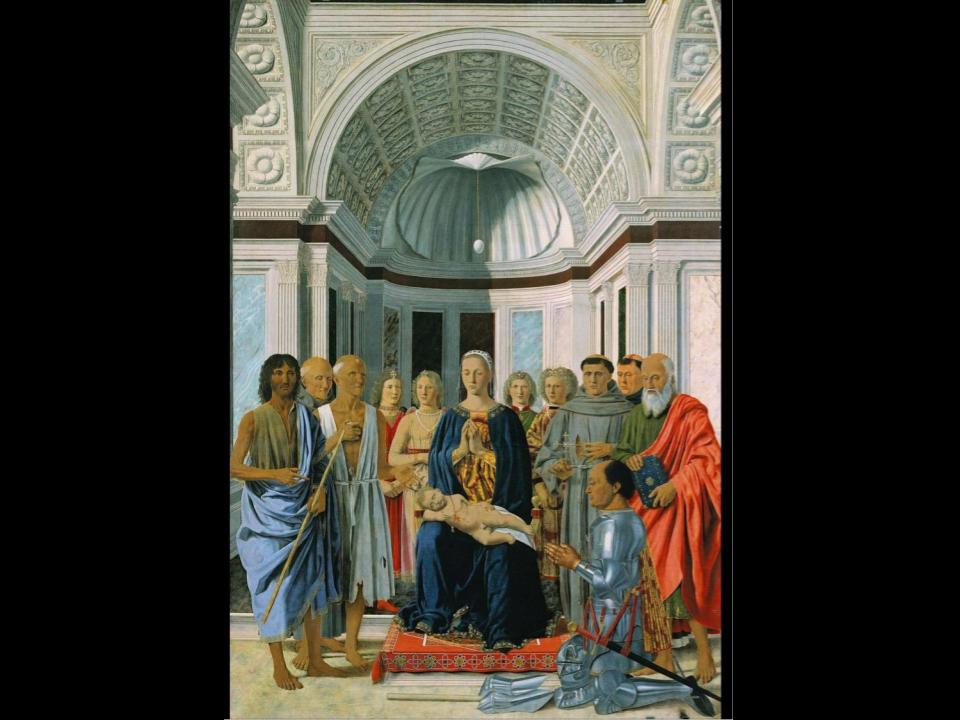
Title: Brera Altarpiece
Date: c.1475–80
Artist: Piero della Francesca
Culture: Florentine
Period: Early Renaissance
3 facts:
The ostrich egg symbolizes divine protection and resurrection
Person kneeling in armour is Fedrico da Montefeltr,o symbolizing his religious devotion
Commissioned to commemorate his wife
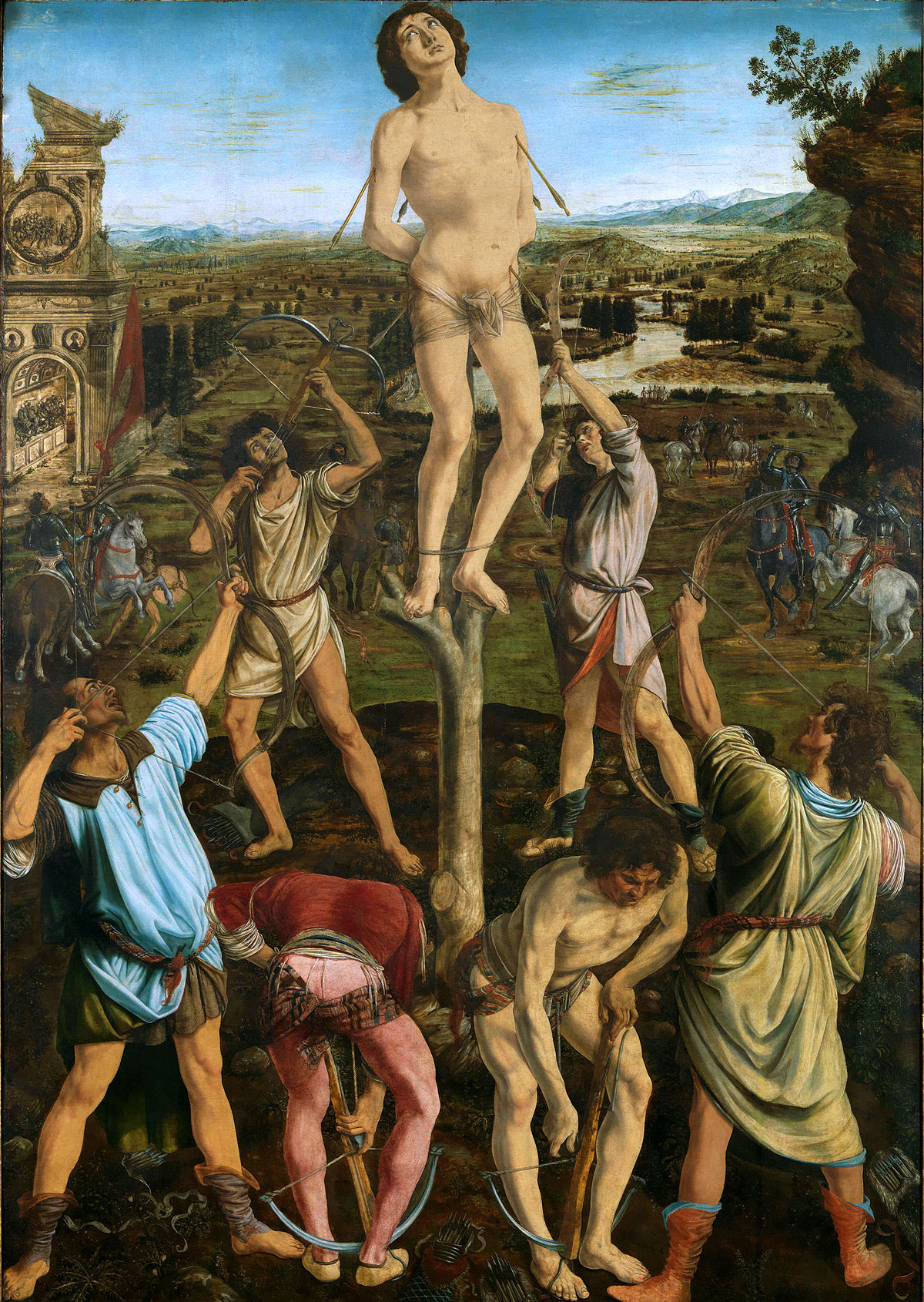
Title: Martyrdom of St. Sebastian
Date: c.1475
Artist: Antonio del Pollaiuolo
Culture: Florentine
Period: Early Renaissance
3 facts:
Patron saint of the black death
Limited gore to appease the Italian audience
Themes of suffering
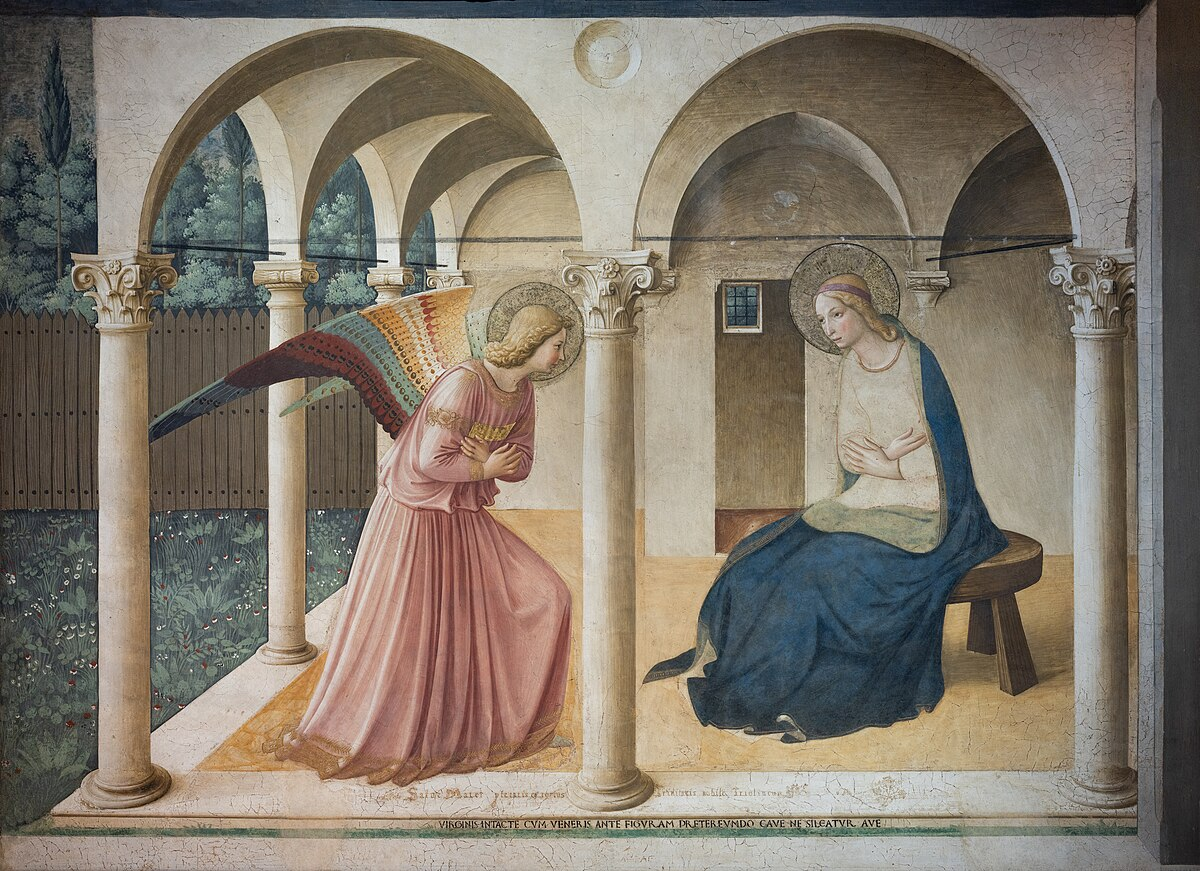
Title: Annunciation
Date: c.1440–45
Artist: Fra Angelico
Culture: Florentine
Period: Early Renaissance
3 facts:
Corinthian style columns
Shows Gabriel greeting Mary with grace.
The garden symbolizes the virginity of Mary, untrampled
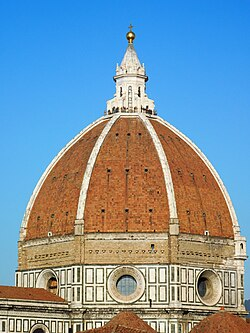
Title: Dome of Florence Cathedral
Date: c.1420–36
Artist: Filippo Brunelleschi
Location: Florence, Italy
Culture: Florentine
Period: Early Renaissance
3 facts:
Two layers of dome, one with wood, outside with concrete
Proud symbol of florence independence and power
Revolutionized Renaissance engineering.
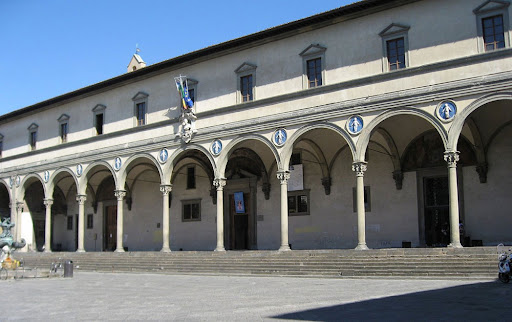
Title: Ospedale degli Innocenti
Date: c.1419–24
Artist: Filippo Brunelleschi
Location: Florence, Italy
Culture: Florentine
Period: Early Renaissance
3 facts:
Originally an orphanage
Famous loggia (rounded arch)
Mathematical rationality, perfection
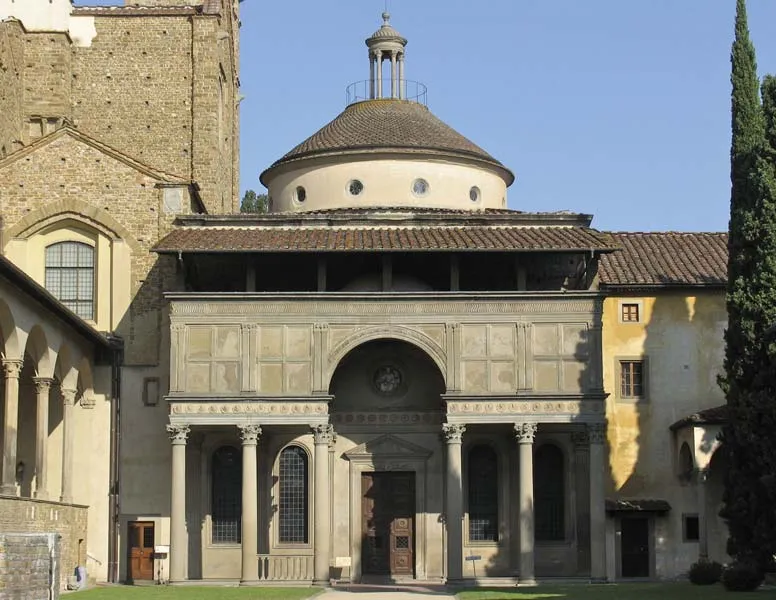
Title: Pazzi Chapel
Date: c.1440
Artist: Filippo Brunelleschi
Location: Florence, Italy
Culture: Florentine
Period: Early Renaissance
3 facts:
The idea of engulfment on the outside, compared to calmness on the inside.
Emphasizes geometric harmony and balance.
Corinthian style columns, architectural dome achievement
Sacred conversation
"Holy conversation" refers
to a depiction of the Virgin and Child (the
Virgin Mary with the infant Jesus) amidst a
group of saints in a relatively informal
grouping.
Condottiere
Italian military Leader